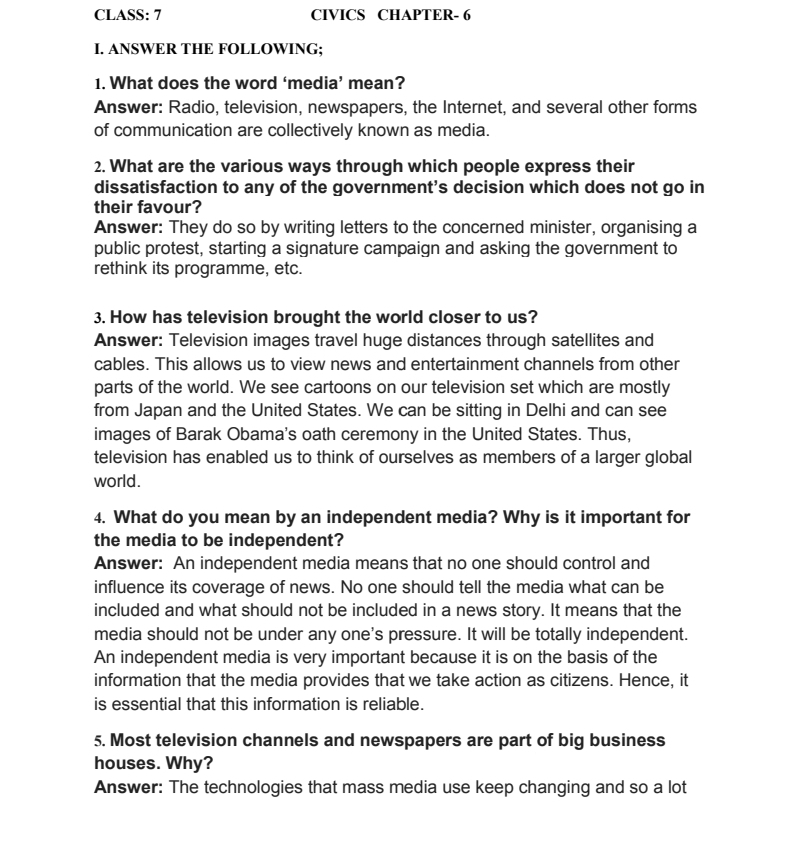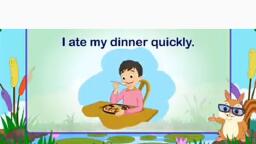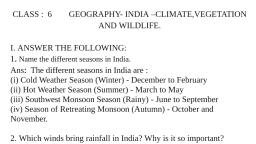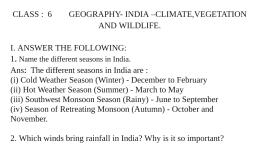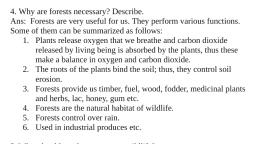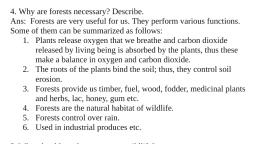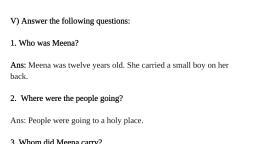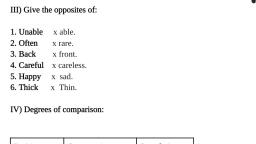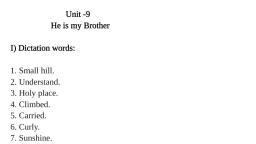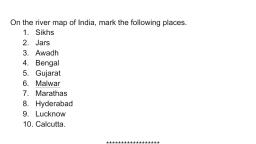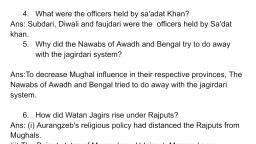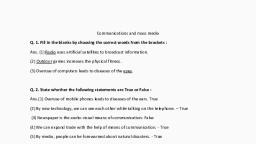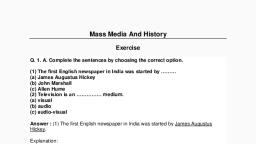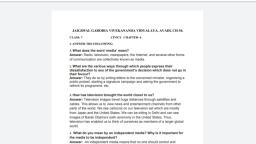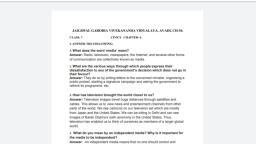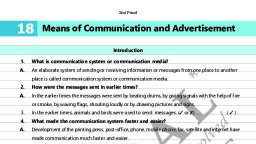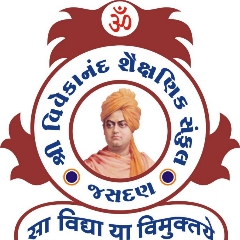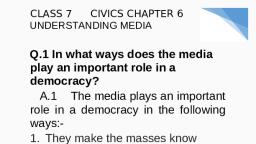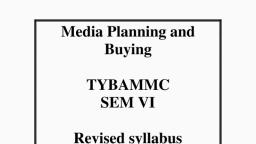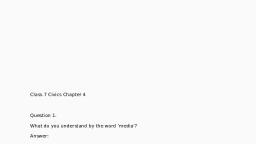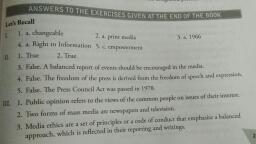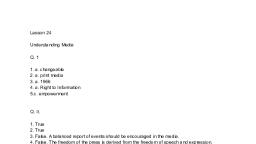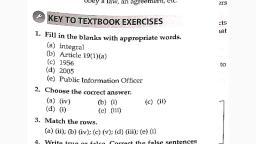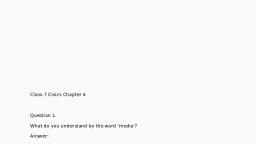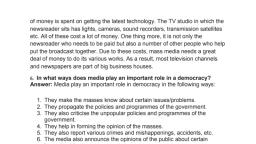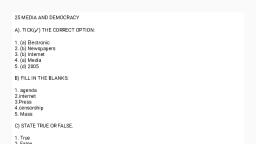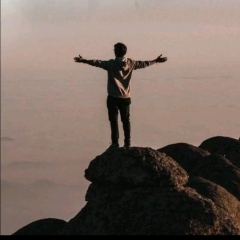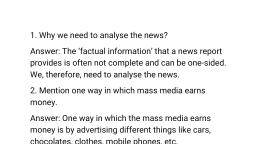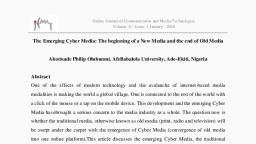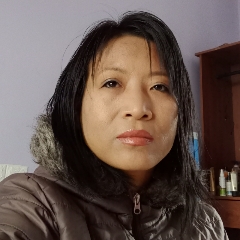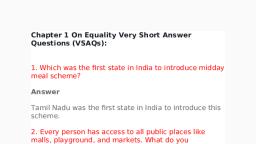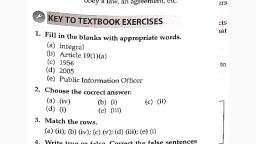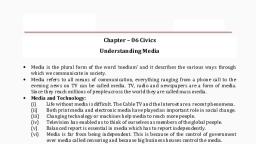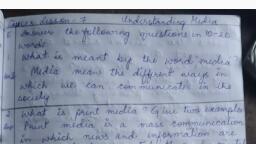Page 1 :
CLASS: 7 CIVICS CHAPTER- 6, 1. ANSWER THE FOLLOWING;, , 1, What does the word ‘media’ mean?, Answer: Radio, television, newspapers, the Internet, and several other forms, of communication are collectively known as media., , 2. What are the various ways through which people express their, dissatisfaction to any of the government's decision which does not go in, their favour?, , Answer: They do so by writing letters to the concerned minister, organising a, public protest, starting a signature campaign and asking the government to, rethink its programme, etc., , 3. How has television brought the world closer to us?, , Answer: Television images travel huge distances through satellites and, cables. This allows us to view news and entertainment channels from other, parts of the world. We see cartoons on our television set which are mostly, from Japan and the United States. We can be sitting in Delhi and can see, images of Barak Obama's oath ceremony in the United States. Thus,, television has enabled us to think of ourselves as members of a larger global, world., , 4, What do you mean by an independent media? Why is it important for, the media to be independent?, , Answer: An independent media means that no one should control and, influence its coverage of news. No one should tell the media what can be, included and what should not be included in a news story. It means that the, media should not be under any one’s pressure. It will be totally independent., An independent media is very important because it is on the basis of the, information that the media provides that we take action as citizens. Hence, it, is essential that this information is reliable., , 5. Most television channels and newspapers are part of big business, houses. Why?, Answer: The technologies that mass media use keep changing and so a lot
